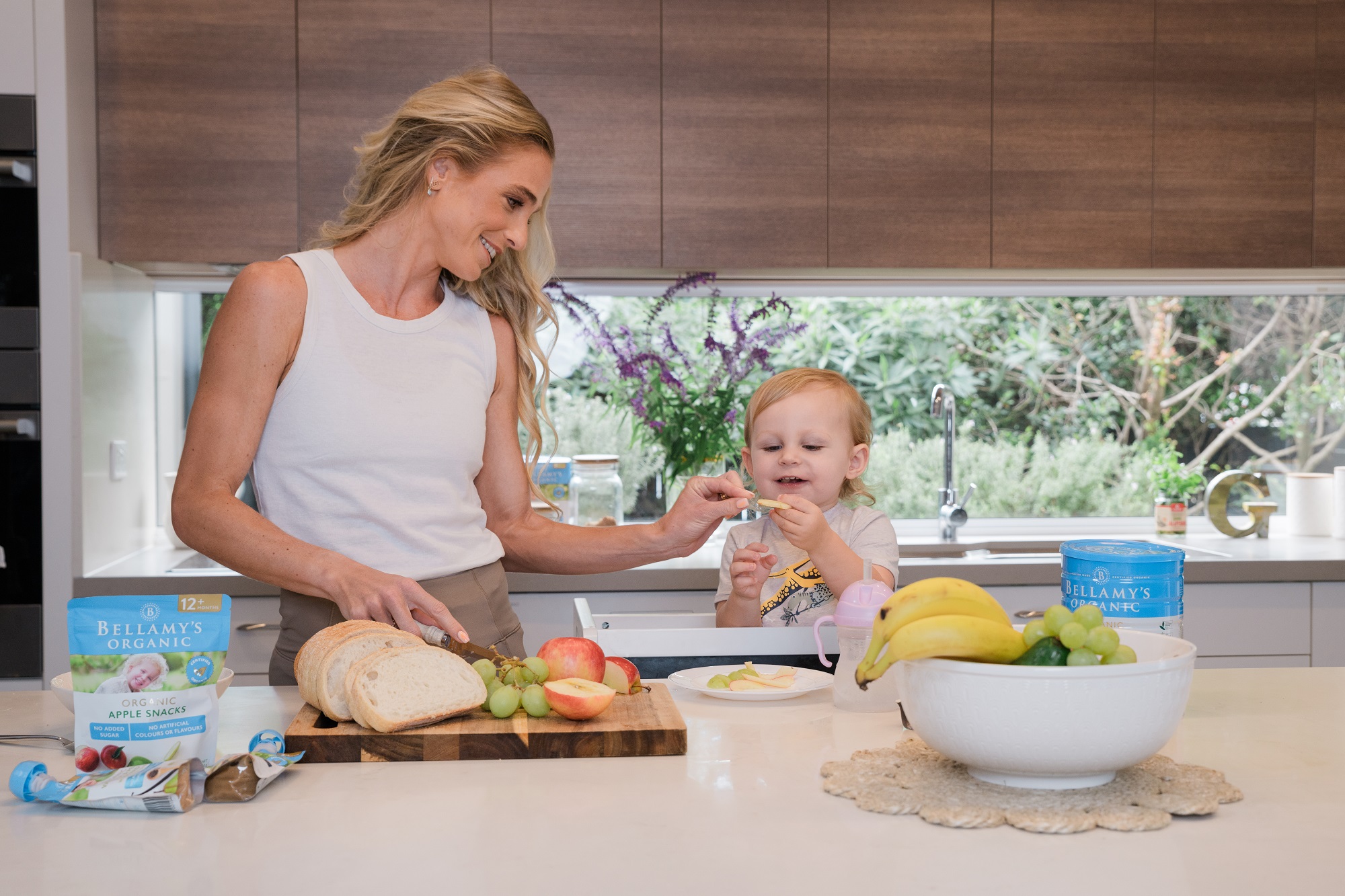You can enforce a tidy bedroom or shut the door and ignore it, or you can take the third option which gives you and your tween or teen so much more!
Some parents have strong views and boundaries about tidy bedrooms, others prefer to shut the door, both are equally okay. If you are neither one of these, well this article is written for you (and the others too of course!).
Many parents can go between asking their tween or teen to clean up, helping them clean up, then walking away and shutting the door only to return a few days later yelling about it or using the mess in the room to regain some control, “Nope you can’t go to …because you never tidied your room when I asked!”
The tween and teen years are a time of desiring more autonomy and independence, self-exploration-who they are, what they are into, what they stand for and with that comes emotional ups and downs. It’s also a time when they pull away from you, creating emotional ups and downs in you too. Often the bedroom can become a sanctuary, a place to stagnate and avoid pressures or people, and let’s be honest a (stinky, clothes all over the floor, left over snacks, spilled drinks) mess. It can also become a battle ground of wilfulness, defiance, and stubbornness and that’s not always just them! But this doesn’t need to be the case at all.
When you think of tweens, teens and bedrooms, you probably think of sleep, food, mess, smelly and slamming doors. Building organisation skills and independence through looking after their bedroom is no surprise. But using interactions around bedrooms’ is the perfect opportunity to build your relationship, connection, trust and increase enjoyment for them in living at home too.
Here’s how in 10 steps.
-
Empathise and educate.
Did you know that brain development through the teen years can have an impact on a young person’s ability to rationalise, prioritise and be organised. Some teens suffer more than others and like all changes through the adolescent years, they ebb and flow, sometimes seeming greater at times than others. Empathy can go a long way when supporting a young person through the teen years. Having a brain that’s struggles to do these things can be tough. When we explain this, it enables them to recognise it in themselves, which encourages action and self -compassion rather than self-sabotage.
-
Support.
Consistent support is key with a view to a transition into being independent in looking after their space. It is not about the transition from you tidying fully to them tidying by themselves by means of you stop and they start. It is a little more complicated in the sense of you slowly do less and they do more and in certain times you revert back to doing more while they do less, with the knowledge that the times you have to revert back are dictated by different factors such as developmentally (having an episode of brain development which is more intense), psychologically (feeling lower in mood), environmental (schools tests, lots of social engagements all at once).
-
Lighten the load.
Sometime the mess can feel over whelming, so breaking the job down into the smallest of tasks possible can make the job easier- picking up one thing at a time and putting it away. Have areas of the bedroom labelled, to make it easier to see where things go. Decide to tidy up for a short length of time and then have a break- the length of a song and then two songs for a break. While these things can initially make the task longer to do, you are lightening the load, have longer to connect and you’re learning about their taste in music too! Once they have learnt how to tidy offer to sit on the bed and keep them company while they do it. Have a minimum standard that will do, rather than a spotlessly clean room every time. Lastly, have a regular time of the day that you do a little rather than leave it all to one day a week if you can, for example after dinner or just before they go to bed.
-
It’s a win-win.
Giving them genuine reasons to have a tidy space can help. Material things for tweens and teens are expensive so when they keep their room tidier it shows us that they can look after their things, which means we are more willing (money aside) to buy them. It shows us responsibility, which helps them gain more freedom. It builds trust, when they follow through with the simple things it shows us they have respect for us and in turn when we feel respected, we also have a more trusting relationship. Trust can be shown when they stick to their word, they agree to tidy for 10 mins every night, rather than to keep it tidy as a realistic offering of their word.
-
Safety first.
‘Safety first’ in as many different areas of parenting as early as possible is the best way to support them to continue this for themselves especially in the later years when they are making decisions around much riskier situations. In a bedroom this can apply to being able to get out of their room safely if there is a fire, so having a clear path at least. Tidying up so that they don’t slip on spills, stand on broken glass and pots, or have mice from left over snacks – rodent urine and poop may contain the Hantavirus which can damage our organs and be deadly, and when they say don’t be dramatic, just remind them of the plague in London – caused by rodents, with a humous smile of course.
-
Influencing sleep
Sleep is huge health issue for many people and tween and teens are no different. During puberty the circadian rhythm of the body changes. In a nutshell, their body clocks changes and they find it harder to go to sleep and harder to wake up. Unfortunately, school hours don’t take this into consideration which means that getting enough sleep can be difficult. Having a space that is comfortable and calm is one of the factors that can help. If their bedroom is not tidy, encouraging a bed that is clutter free and comfortable is a positive influence on getting to sleep easier.
-
Build autonomy.
It is not uncommon for teens to crave autonomy, using their space to freely decorate or rearrange their room and explore this is a great, safe way. Engaging in conversation about what they can use their room for regarding looking after their wellbeing also builds autonomy. We all need a space to have privacy, regulate our emotions, or just chill. Allowing them to walk away (to their room) from conflict when they need to and then respecting that by not following them in (even though we really want to at times), knocking before entering can give them a sense of ownership and autonomy. When a tween or teen is seeking this if they can’t access it one way, they will access it another (storming out of the house during conflict). Having ownership of their space can be a safe and healthy way to exercise autonomy.
-
Do your own work.
Think about your unique family dynamics and decide what the bedroom can be used for. Not just now, but right the way through the teen years and into adulthood as more young people are staying home longer. This will help you build your boundaries around the bedroom space. Some are obvious as mentioned above others may inspire you to consider them or give you other ideas, homework, playing and gaming, a place you send them when they have crossed one of your boundaries, one on one time with them, a place for private conversations with you, hanging out with friends, romantic interests. Does this change with age, is there a difference between doors open and doors closed? Now that you have created a list, ask yourself why you believe this, just for a few minutes challenge your own beliefs. Where did you get these beliefs? What evidence have you got? Your tween and teen will ask you all these questions. Sometimes when we realise we have a belief about something and we are not sure why, it can be helpful to ask ourselves if we still choose this belief especially if we consider what the long-term consequences for our relationship should we enforce it.
-
Consequences
Conflict about a tidy bedroom is standard practise during the teen years and so a clear understanding between you both about what the consequences are when requests are not followed, rooms are untidy etc will reduce conflict. Natural consequences and logical consequences are often the most effective long term and cause the least amount of long-term disconnection between you both. Natural consequences mean you do not have to do anything at all, for example they can’t find something they need in their room. When a natural consequence is occurring, it’s important to be empathetic. “I’m so sorry you can’t find your favourite shoes, that sucks, I hate it when I can’t find something”. A logical consequence is when you take an action that is directly related to the event, “I can’t help you find them right now, I am making dinner”. Then holding your words for a few minutes even if your tween or teen yells or begs, sometimes this learning can take a little longer and needs a little more patience, but in the long run serves as a positive driver in their development and your relationship.
-
Connection is key.
Pick your battles is a term often used when parenting. At Raising Great Teens, we also say pick connection-choose to view everything you do with the intention to have a lifelong close relationship with your tween or teen. When it comes to the bedroom, take the opportunity to have the chat before you go to bed, to take them a drink and just ask “Can I join you, I’ve missed you today?” If they say yes then say nothing, sit in the quiet, let them decide what to share. When you feel yourself rise over the mess take a moment to breath and lean into the notion of a lifelong connected relationship. One that grows through many micro moments of curiosity, what’s really happening for me right now? Dropping assumptions and judgements, embracing curiosity and leaning in with love, “I wonder why they are struggling to tidy their room?” Through this you gain the skills to be able to ‘read’ your tween or teen- to really be able to get a good idea about how they are doing without having to ask, just by simply observing how they are in their own space, what they are doing in there and the mess levels around them.
Every interaction is an opportunity to build your relationship with our tween or teen. If you would like to learn more about building a lifelong connected relationship with your tween or teen while parenting with clear boundaries and positive influence, follow us on our social media pages and check out our other articles and online courses at https://raisinggreatteens.com/









